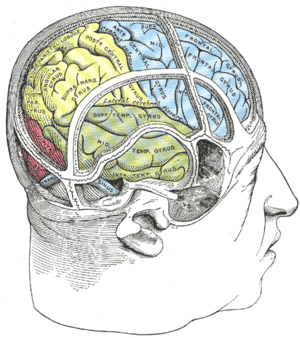I'm sure that all the listeners to the Naked Scientists are excellent at maths, although our own Dr Kat apparently isn't so hot on the number front. But around one in five of the population has a moderate to severe problem with numbers, and maths ability can also be lost as a result of diseases affecting the brain, such as stroke. This obviously causes problems in daily life and work.
 Now some fascinating new research from scientists in Oxford and London could bring a boost to people's mathematical ability, with the help of an electrical zapping to the brain. Their results are published in the journal Current Biology - no pun intended.
Now some fascinating new research from scientists in Oxford and London could bring a boost to people's mathematical ability, with the help of an electrical zapping to the brain. Their results are published in the journal Current Biology - no pun intended.
The whole idea started from previous studies showing that maths ability seems to be tied up in a particular are of the brain called the right parietal lobe - that's a region on the top of your brain, around the crown of your head. Damage in this area is linked to problems with maths and numbers.
So the researchers, led by Roi Cohen Kadosh at Oxford University figured that stimulating the brain with electrical impulses, using a non-invasive technique called transcranial direct current stimulation, or TDCS, might help to boost maths power.
The scientists recruited 15 healthy volunteers, who had average maths ability, and asked them to learn a series of symbols that represented artificial numbers. And at the same time, the researchers used the TDCS technique to stimulate the volunteers' brains.
They divided the volunteers into three groups - two receiving stimulation to either their left or right parietal lobe,and one group getting a 'sham' zapping that only lasted a few seconds.
When the researchers then tested the volunteers, they found that the people who'd had stimulation to their right parietal lobe were more likely to be better at learning the new number system than the people in the other groups. And this improvement was still measurable 6 months after the original training.
Not just yet, and people certainly shouldn't go around giving themselves electrical shocks to the brain in the hope of improving their maths skills. While it's unlikely that this type of treatment can turn a maths dunce into Einstein, it might be useful for people who have severe difficulties with maths that hamper their normal life, such as being able to count out money. Although we don't know for sure whether this will work, the researchers are planning to test this idea in future experiments.










Comments
Add a comment